Fantastic choice for a topic this week especially with RootsTechConnect having many DNA videos to watch and the upcoming Family History Down Under having a full day stream of DNA talks.
- Have you taken one or more DNA tests? Companies? Ethnicity or relationship discoveries / surprises? Reasons to test or not test?
- How have you acquired your knowledge about using DNA for family history?
- Has DNA helped your family history research? How? Solved brick walls, found family mysteries?
- DNA tips, tools and techniques? How do you manage your DNA data? Multiple kits? Enrolling more cousins to test?
There are many testing companies for DNA. Most are autosomal (DNA from both parents) but you can also do Y-DNA and mt-DNA tests which follow just the male line (Y) or the female line (mt). Here is a very easy to read with diagrams blog post about test types by Louisa Coakley an Australian. Louise has a fantastic blog with lots of links and resources whether you are a beginner or more advanced.
All the information you really need to know about DNA can be found in the links in the paragraph above or the blogs mentioned below. So the rest of the post will be more how the participants in chat have found using DNA for family history.
DNA blogs to check out:
- Louise Coakley – DNA and genealogy
- Blaine Bettinger – The Genetic Genealogist
- CeCe Moore – The DNA Detectives
- Roberta Estes – DNA eXplained
- Kitty Cooper
- Diahan Southard – Your DNA guide
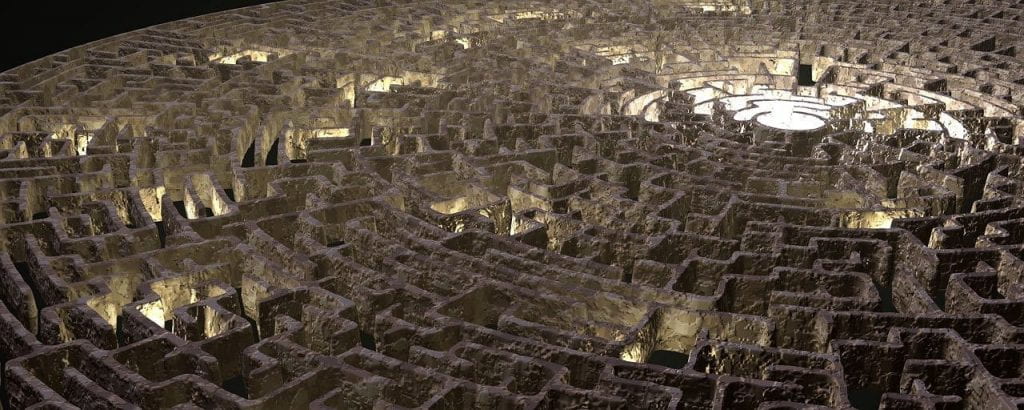
Brick walls and mysteries
Sharn: My maiden name was different to my paternal DNA matches. I discovered it had been changed. My mother’s maiden name didn’t match her DNA matches.Her grandfather had changed his after deserting a 1st wife.
Margaret B: I found family for my father’s ancestors where there are few records including a sister for my ggma
Mining the Past: it has confirmed my paper trail and I’ve found cousins who have stories and photos. I have found what happened to ‘missing’ siblings through their descendants turning up overseas.
SirLeprechaunRabbit: Gramma🐰s line (dad’s mat.line) has multiplied faster than 🐰🐰🐰 and I have found a few ATKINSONs (mum’s pat.line). Solved one mystery but split it up 3 ways! New mystery now.
WanderingGnostic: Winston Churchill is my 4th cousin 4x removed. Reckon we have a resemblance ? I’m related through the Spencer-Churchills
Helen: I’ve been following issues around solving cold cases and restoring identity to John/Jane Does. I do wonder though about issues around identifying mothers of unidentified newborns (neonaticide), in some cases. Lots to think about.
Hilary: Given all my relatives on the Relatives at RootsTech app were 4th cousins and beyond I am not holding out for matches
Tara: Several different ways: Confirm paper research. Help DNA matches rebuild and connect to my family tree, leading to photo and story exchanges. It’s helped me narrow down the range of possibilities where there are several likely ancestral contenders.
Fran: I would like more of my maternal side as a one name study has done a lot of my paternal so I’s doing other stuff rather than verify this work.
Maggie: #DNA has helped confirm a lot of my paper-based research, which is definitely encouraging! I have a few 19th century brick-walls and conundrums that I’d like to solve still…
Pauleen: My mother has a decent match to a cousin in Canada, and all her siblings and a first cousin. Their origins are in Wexford as is one of mum’s lines, but the paper trail defeats us.
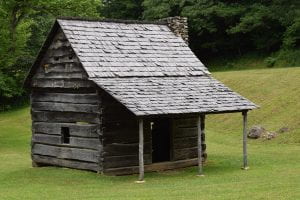
Sue: DNA has got me back to UK with some free settlers that just said Devon and Yorkshire when they arrived in Tassie. Also got my grandfather’s true name and now back to 1700’s
SOPS: Brilliant! Love it when DNA matches help people to cross continents with their research!
Sue: Definitely helps with bigamists adding extra to their names and making it difficult to research!!
Maggie: I’ve learnt about using #DNA mostly from talks and lectures – I remember my first ever one was by @DebbieKennett at WDYTYA?Live maybe in 2012? It’s a continual learning process.
Dara: I have two sizable matches with my Dad. They seemingly share the same family line in Co. Laois, but bizarrely don’t triangulate with each other. I can’t get my head around it.
Fran: Sometimes its a slow process with DNA but hopefully with some success
SOPS: Yes, DNA is a waiting game. Perhaps less so for some now, with so many having tested since the earlier days. It took 3 years for me to identify the bio father of a friend of mine who was adopted as a baby
Helen: Yes. More than a year for us to identify my mother’s paternal grandfather. Meeting new cousins was the best part of that. Otherwise, my mother felt sad that her own father never knew his father
Pauleen: #geneticgenealogy wisely comes with warnings – if you know there’s secrets and mysteries, well and good but you can be blindsided. Makes me nervous when I ask cousins to test.
Sandra: Through DNA I have been able to add a branch I would never have known about. I have found The father’s family of my illegitimate great grandmother. Also lopped off a branch of my husband’s tree and added the DNA based one. Good to know the truth
Karen Anne: Have met some distant cousins who have told me stories that I didn’t know about the family.
SOPS: DNA testing and research has helped to confirm much of the family tree I had developed through traditional records-based research, which is gratifying! I have solved more mysteries for other people than for myself so far, but that’s been gratifying too.
Dara: DNA has mostly confirmed my paper trail, no surprises yet, though I’m starting to worry about my G-grandfather brick wall. Might be a surprise there
Paula: I was contacted by a match who was able to use my tree to confirm details of her biological mother.
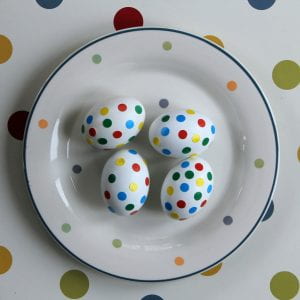
Pauleen: I have cousins with each company, but the most with Ancestry because of its market saturation. I like their coloured dots option but like everyone I wish that we had a chromosome browser. FTDNA has the browser but issues with it counting smaller Cm matches.
Jennifer: I took my DNA test with Ancestry. Ashamed to admit that I’ve done nothing with it as yet. I was surprised that I had no Welsh ethnicity when 2 X great grandparents came from Wales.
ANZ: It took me a while to do anything with my parents’ results too – and still more to do. I think it takes time to work your way through everything, and to make the most of the tools available.
Shauna: DNA totally changed my Dad’s family research. Would I do the test again? Yes as I much prefer to know the truth and it also helped me to finally understand a lot of the tensions when I was growing up. Everyone knew but no one told me
Pauleen: DNA has confirmed that my paper trail is correct…cousins match as and where they should, with no surprises so far. Existence of documents to confirm Irish ancestors is a problem. Known cousin links have helped a lot.
SOPS: I had prepared myself and my friend for a long wait, which lessened the frustration a little! It also helped that traditional research and a stroke of luck with an Ancestry family tree enabled me to ‘reunite’ my friend with some of her half siblings early on!
Helen: Someone I should have matched with on Ancestry (has taken test) I don’t. Haven’t worked through that one yet
Pauleen: Many of my genimates here were at #DNADownUnder with me. I remember being astounded just how big a percentage of people had discovered a secret or surprise. I almost felt left out…but not quite 😉
Pauleen: I had myself and mum on FTDNA for quite a while before I got a close relative. The proliferation of testing has been a blessing despite those without trees.
Sharn: I used DNA last year to find out which of my cousins now deceased was the biological father of an adoptee. He now has a whole new family. All those conferences paid off
Fran: my pile of first cousins that have tested are a great help. I can find maternal DNA cousins with smaller shared DNA that do not share with me. Good when so many people have no tree and test for ethnicity only.
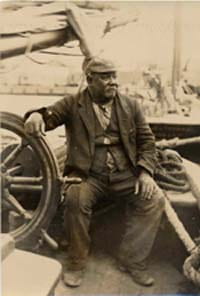
Sue: Dad was the main surprise with no Samoan yet two relatives I also tested did have it. Hence testing others that are now half relatives. Mum was no surprise totally English/Irish a little
Sandra: Found out my parents are related and I have pedigree collapse in my tree. Plus husband’s mother’s dad isn’t who is listed on the birth certificate.
Paula: DNA test with Ancestry and added to My Heritage. Identified my g grandfather as a result. Couldn’t have done it otherwise.
Paula: my gg grandmother went to Australia leaving my g grandfather in Scotland. DNA has helped to link me with some lovely cousins in Australia
Pauleen: Connecting with cousins is a big bonus
Paula: Most definitely. DNA and blogging has opened up a whole new family
SOPS: I have tested with Ancestry, Family Tree DNA, and Living DNA. A 23&Me test is to follow. For DNA matches to confirm/disprove relationships in my record-based family tree, and to see if I can unmask the father of my 2x great grandfather Henry Atcherley! And uploaded to MyHeritage too of course! Several other descendants of Henry Atcherley have also tested too, to help triangulate shared matches. No Eureka moment yet, but I have now found shared matches with shared ancestors so the field is narrowing
Sharn: When I took my first NA test I had a huge surprise – I was Polish. For years I searched for my mysterious Polish ancestors and then realised that my cousin’s DNA and mine had been switched. and that was a bigger surprise!
Fran: I found a Great Grandfathers ancestors via DNA. Happy dance find as I was stuck and my DNA cousin had done some research that helped.
Daniel: I haven’t taken one as of yet. I’m not testing as being a blood relative of an adoptee who’s finding out their birth family very recently.
Pauleen: Very grateful to have my mother’s DNA on a few sites. It really helps to distinguish which side of the tree. haven’t got a definitive DNA link for the Sherry/McSharry/McSherry family back to Ireland. Always take a deep breath before asking cousins to test
Tara: Tested my late granduncle with myFTDNA (because he wasn’t able to spit and I didn’t know there was a trick) and my maternal grandmother with Ancestry. Both to help with research. Ethnicity not an interest but surprising results for GU

Tips, tools, techniques
Margaret B: I have my matches on several spreadsheets in cM order from all sites
Mining the Past: I use GenomeMatePro to manage kits/matches. I need to upgrade to its replacement GDAT but haven’t had time yet. I love DNAGedcom for auto clustering and DNA Painter. Gedmatch has many useful tools too.
Tara: Attending in person and online seminars with Legacy. I’m lucky to know @GenealogyLass so I can ask her questions. I also found this book very helpful pen-and-sword.co.uk/Tracing-Your-A…
Fran: It’s good to have a DNA buddy.
Pauleen: DNA is like starting family history all over again and is very time consuming. I have read books, attended the excellent DNA Down Under seminar in 2019 and follow DNA FB pages
Sandra: I found Shelley Crawford’s visualising Ancestry DNA matches using NodeXL to be very helpful for me. Also using DNA painter to try and work out whether individual matching segments are maternal or paternal. Clustering is also very helpful.
As an FYI, mum struggled with Ancestry’s spit test though she was happy to do it. In the end we did the fake spit as shown in this video. it worked and it means I can use the much bigger database to advantage. https://t.co/z9aJltqv2G #ANZAncestryTime
— Pauleen Cass (@cassmob) March 9, 2021
Maggie: Genetic Genealogy Ireland I’d also second the recommendation of the Genetic Genealogy Ireland videos from Back to Our Past.
SOPS: Extensive notes and use of Custom Groups at Ancestry. Was too late to get Mum to test, but both brothers and Dad have tested, two half-2nd cousins and a few 3rd cousins. Other close cousins popping up in results also help with evaluation of matches.
Sue: I do one little thing on DNA then write post about it; see post below about finding grandfather
Fran: There are over 200 webinars on DNA at familytreewebinars.com. Just renewed my membership. While most are free for a short while I find watching at my convenience worth the cost
Dara: Absolutely, Deleted my kits from GEDmatch, and am unsure of FTDNA. I don’t object to using DNA for crime prevention. But they should follow due process, which seems lacking, in the US. Police cannot just enter your house without a warrant, why your DNA?
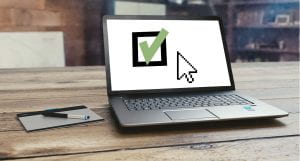
Pauleen: Gedmatch can be useful but I use it less. I routinely use DNA Painter to compare where the DNA match fits in the cousin ranking. I’ve also mapped some of my matches using DNA Painter. Still lots of learning to apply. What is my priority – DNA or writing up
Margaret: My % differ markedly. Irish- with Ancestry 86%, FTDNA 99% and only 46% with My Heritage. MH clearly too low in my case and FT way too high. Ancestry picks up lots of Irish who went to US I think.
Sue: Google spreadsheets for each kit tested but mainly parents, DNAPainter, WATO, Chromosome browsers for triangulating, YDNA for Dad, colour coding ancestry, notes on how connected
Hilary: with all my matches being distant it can be difficult to know which ones are genuine when they don’t have a tree to compare matches
Pauleen: Blaine Bettinger’s books are also very good. We were so lucky to attend the #DNADownUnder conference. But man, does DNA take some time!
Tara: I haven’t read Blaine’s books but I’ve heard him speak. Really clear also @dnapainter (Only on first mug of coffee here so a little slow!)
Sharn: Tara it was Blaine who really explained how to use DNA painter in a way I could put into practice
Tara: Yes, he’s very good. I tend to think of Jonny though because I’ve had a few drinks with him and others after FamilyTreeLive and I haven’t met Blaine yet 🙂
Pauleen: Social networking can be critical 😉
Shauna: I find using DNA Painter good for identifying Mum’s side, she had no surprises. I have also tried WATO but I don’t have enough close matches on Dad’s side. I mainly use the tools provided by the companies eg clusters, colour coded matches, chromosome browsers
Jane: I have some good matches at 23andMe. I don’t like the recent change to the ‘yes’ column though … dna-explained.com/2021/03/08/23a…
Dara: Yes, the lack of Chromosome browser on Ancestry is a pain for confirming 100%, but they do have the most matches, which is great. Many are not interested in genealogy though.
Sharn: DNA Downunder was brilliant. I put so much into action after that conference. Four days of full on DNA learning
Helen: do any of you have ethical/privacy concerns about the different testing sites?
Dara: DNA was a steep learning curve! I’m still learning. Reading, Reading, Reading and conferences, The BacktoOurPast DNA lectures for the initial years are free online, and @RobertaJEstes blog is a treasure trove
CBGenealogy: +1 on @mauricegleeson‘s excellent work arranging Genetic Genealogy Ireland & their lectures both on YouTube @legacyfamily
Dara: Yes, and he’s one of the best speakers too, him and @GenealogyLass.
Sue: a lot of reading especially @blaine_5 info, but also reading what each different company or website says about their testing. Also joining Facebook groups for DNA in Aus/NZ/UK
Fran: Many RootsTech Classes over the years, DNA Downunder for the main conferences. Read lots of blogs. Ask Pauleen at @cassmob to sort me out. Podcasts and Webinars too. Should know more for the amount I have done. Just need to apply the learnings.
Pauleen: People to learn from: Blaine Bettinger, Angie Bush, Diahan Southard, Roberta Estes, Debbie Kennett, Louise Coakley, Michelle Leonard, Michelle Patient. Lots of skills and knowledge out there. Bound to have omitted someone – @HicksShauna @HVSresearch @kerryfarmer
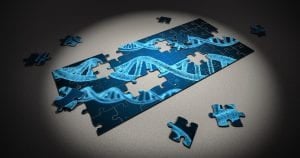
SOPS: I’m very much a ‘learn by doing’ kind of person, taking the plunge and answering questions along the way by using Google to find websites with answers! Having said that, I did read @DebbieKennett‘s “DNA and Social Networking” back in the beginning. I also attended several DNA presentations at the #WDYTYALive shows and found Maurice Gleeson’s talks particularly enlightening.
Dara: I found Ancestry the best for discoveries, Nothing at FTDNA sadly. MyHeritage is showing intriguing results maybe for my G-Grandfather brickwall, and I love their tools. What about you?
Sue: have tested 8 relatives on Ancestry, uploaded them all to FTDNA, MyHeritage, GEDmatch and a few to LivingDNA. I also tested with Living DNA to get the specific counties info as I am virtually 100% English/Irish
Jane: Learned a lot just playing with the data, belonging to relevant forums, reading etc
Jennifer: I need to get started. I’ve been waiting until I know it all first. My knowledge as yet is very sparse, but I intend to put serious time into the @RootsTechConf DNA sessions
Tara: I have had some good success on Ancestry applying detective lessons from a @GenealogyLass seminar even when they’ve had barely anything
Paula: online research and I’ve attended a couple of talks at family history fairs. Still very limited knowledge. Keeping track of results is hard!
Shauna: I have been to quite a few in person DNA seminars and talked to experts about looking for my biological grandfather. Also read books, blogs and watched webinars. Blaine Bettinger and Maurice Gleeson are favourites
Daniel: I’d say any bits I may have seen about DNA in genealogy would have been from Debbie Kennett or anyone else that tweets about it
Blog posts from participants
Sue: Finding grandfather, posts tagged DNA, posts specific to DNA matches
Jill: posts labelled DNA
Great quotes:
Mining the Past: I am lucky to have been a scientific researcher in cell and molecular biology in a past life so I understood DNA inheritance. I thought that coupled with knowledge of genealogy would make it relatively straightforward. Boy was i wrong! I like to learn by experimenting hands on so I learnt mostly by just getting stuck in and trying things out and searching out info when I got stuck. Blaine’s Genetic Genealogy Tips and Techniques is great. I struggled until I began getting other relatives to test. My dad’s was really helpful in separating maternal/paternal. I also have maternal aunt and 1C1R and paternal half-uncle. A 1C has just agreed to do Y-DNA so that will be new for me.
Sue: Jeepers, chat is half over and I was here on time but got waylaid checking out some DNA matches for dad.
Readers: Have you solved a mystery or brickwall in your family history using DNA?
Really great summary Once again. Thanks Sue